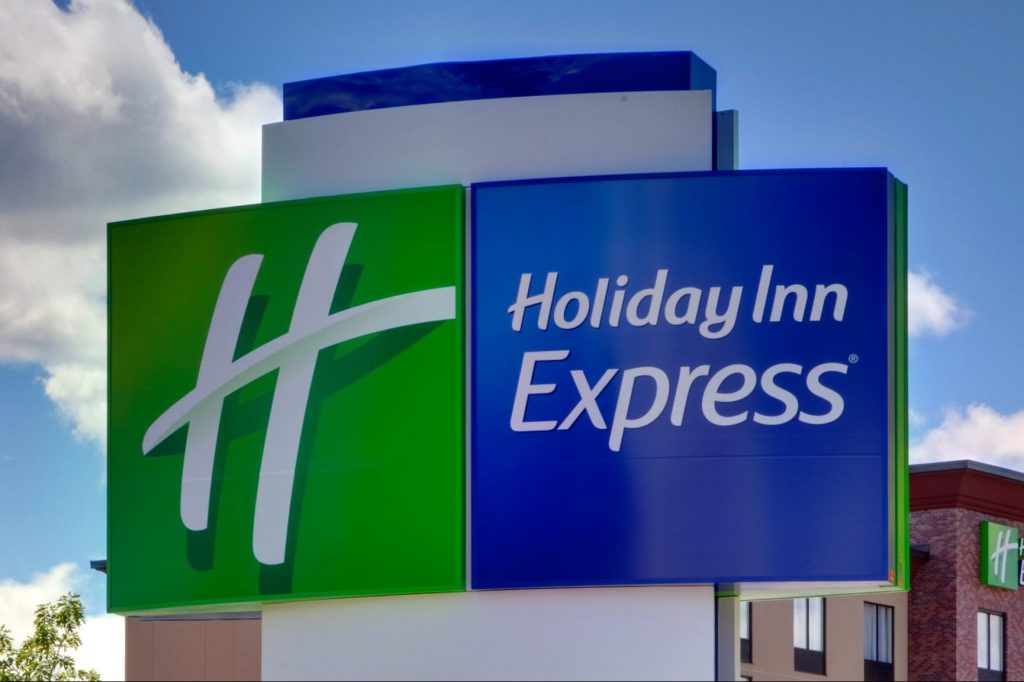Skift Take
If you’re looking for signs of the pandemic’s negative impact on the hotel industry, IHG’s ongoing pace of hotel deals and openings isn’t it.
Coronavirus travel restrictions and economic shutdowns around the world haven’t distracted IHG from building out plans for a post-pandemic global portfolio.
IHG opened 90 new hotels over the first half of 2020 and signed deals for 181 more, including nearly 100 Holiday Inns, company leaders reported Tuesday. The UK-based hotel company wasn’t immune to the catastrophic coronavirus impact on travel: IHG reported a $275 million pre-tax loss for the first half of the year and laid off about 10 percent of its corporate staff in a move to cut costs into 2021.
But the company feels its focus on midscale brands appealing to domestic travelers like Holiday Inn as well as a growing luxury portfolio with brands like Regent Hotels and Kimpton position it well to capture growth opportunities during the economic recovery.
“As you can see, while we’ve been dealing with our response to Covid-19, we remain focused on our future growth as travel returns,” IHG CEO Keith Barr said during an earnings call. “We continue to open and sign hotels on a weekly basis, and, in some markets, we’re discussing deals more than ever before.”
IHG’s pace of new deals equates to one new signing each day for the first half of the year. Nearly 80 of those signings took place over the second quarter, which executives at competing companies like Marriott have labeled the most challenging quarter the industry has ever seen.
IHG centered its optimistic growth outlook around what company leaders label their mainstream brands, a 5,022-hotel portfolio of brands like Holiday Inn, Staybridge Suites, and Candlewood Suites.
The sector represents 73 percent of the total IHG system and is able to capture the leisure and drive-to travel leading the industry’s early stages of a global recovery. IHG’s U.S. mainstream brand portfolio currently operates at more than 50 percent occupancy levels, the company claims.
Average U.S. hotel occupancy was 49% at the beginning of August, the most recent data provided by STR.
“We are heavily weighted to and have a market-leading position within the mainstream segment, which continues to outpace [industry performance],” Barr said.
While a bulk of IHG’s 2020 growth centers around the mainstream portfolio, the company is still seeing growth in the luxury sector. Along with the ongoing build-out of the Regent Hotels brand it acquired in 2018, IHG signed new deals for its Six Senses Hotels, InterContinental, and Kimpton brands around the world.
“It’s worth bearing in mind, while development activity will likely slow, our owners look at investments in the long-term based on the strength of our industry,” Barr said.
Default Ambivalence
IHG may be bullish on what the hotel industry will look like on the other side of an economic recovery, but the company isn’t entirely centered on growth mode.
Service Properties Trust (SVC) claimed last month IHG defaulted on $8.4 million in guaranteed property returns at 103 branded hotels the Boston-based real estate firm owns across the U.S., Canada, and Puerto Rico. SVC plans to turn those hotels into Sonesta International Hotels Corp.-branded properties if IHG doesn’t make a payment by August 24.
The potential default stands to become the highest-profile hotel transaction to result directly from the pandemic in North America, but IHG leaders Tuesday downplayed its impact to the company.
“In terms of the SVC portfolio, this is a fairly small portfolio from an earnings perspective. It’s less than half a percent of group earnings,” said IHG Chief Financial Officer Paul Edgecliffe-Johnson. “We’ll see what happens if we do part ways. There’s still a period of time to go before that will happen towards the end of the year.”
Business Outlook
IHG’s optimism shouldn’t be misconstrued as pollyannaish.
Global revenue per available room, the hotel industry’s key performance metric, was down 75 percent for the second quarter. Hotel demand was at its lowest the company had ever seen, Barr added.
But the cratered performance isn’t enough to sway IHG’s long-term outlook that travel demand will inevitably — at some unknown point — return to prior peak performance levels. In the near-term, IHG recognizes its brands centered on drive-to travel like Holiday Inn will lead the way in recovery.
“Given that we are a largely domestic, mainstream business, there is a fair way that we can grow back before we run up against the hurdles of the international traveler that I don’t think any of us feel will be coming back in the very near-term,” said Edgecliffe-Johnson.
While there is general travel sentiment that business and convention travel will be the last sectors to return to the hotel industry, Barr said IHG is still seeing a significant level of business travel in current conditions due to the non-discretionary nature of many companies.
“They can’t do it through technology. They have to be on-site,” he added. “That’s not your top-tier banker or things like that, but it’s the individual who is driving from a Holiday Inn Express to a Holiday Inn Express to do a job.”
The resilient base of business travelers to IHG’s extensive mainstream portfolio gives the company confidence in its ability to recover from the pandemic, as it isn’t as exposed to convention bookings or more discretionary business travel.
“It would not be accurate to say there will be no impact, because I’m sure it will. But I don’t think it’s a material shift that business travel will be down 10, 20, or 30 percent going forward,” Barr said. “I don’t think anyone has that real view yet.”
Have a confidential tip for Skift? Get in touch
Tags: coronavirus, coronavirus recovery, ihg
Photo credit: IHG, parent company of brands like Holiday Inn, is struggling with depleted travel demand during coronavirus. But the company is also throttling forward with growth plans beyond the pandemic. InterContinental Hotels Group
